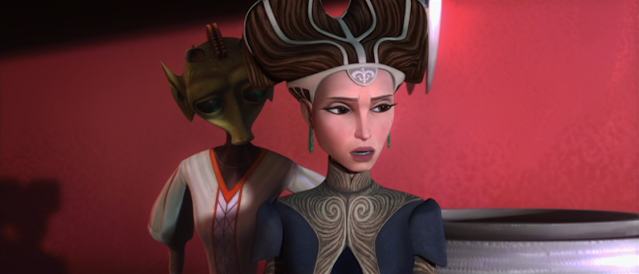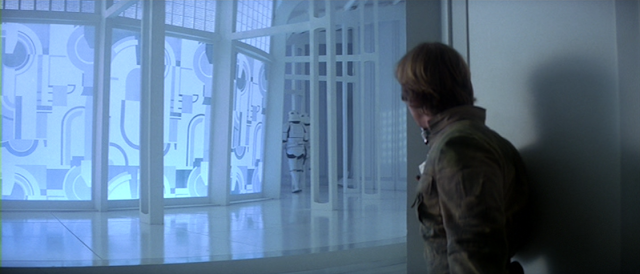In my latest re-watch of The Clone Wars, I recently watched "Senate Murders" and noticed some significant lighting in the climactic scene.
Lieutenant Divo suspects Senator Burtoni for the murders of Senator Farr and Senator Deechi, partially because the poison that killed Farr was developed by Kaminoans and Burtoni is a Kaminoan. When Divo mentions that the poison affects only Rodians, however, Senator Amidala notes an inconsistency: if the poison affects Rodians and the senatorial party all drank the poisoned drinks, Lolo would have been poisoned too. As Amidala is considering this, Lolo is standing behind her, covered by her shadow:
As Amidala remembers that Lolo didn't drink, Lolo steps out from behind her, pulls a blaster on Amidala, and admits to the murders:
Lolo's standing in the shadow here represents two things. On a simple level, it shows that she's trying to avoid the scrutiny of the investigation, but, more metaphorically, it also illustrates that her involvement has been obscured while Divo has been conducting his investigation and Amidala and Senator Organa have been doing their own. None of them considered Lolo as a suspect until this moment, and when she steps out into the light, she reveals everything. The shadow she's hiding in represents the characters' ignorance.











